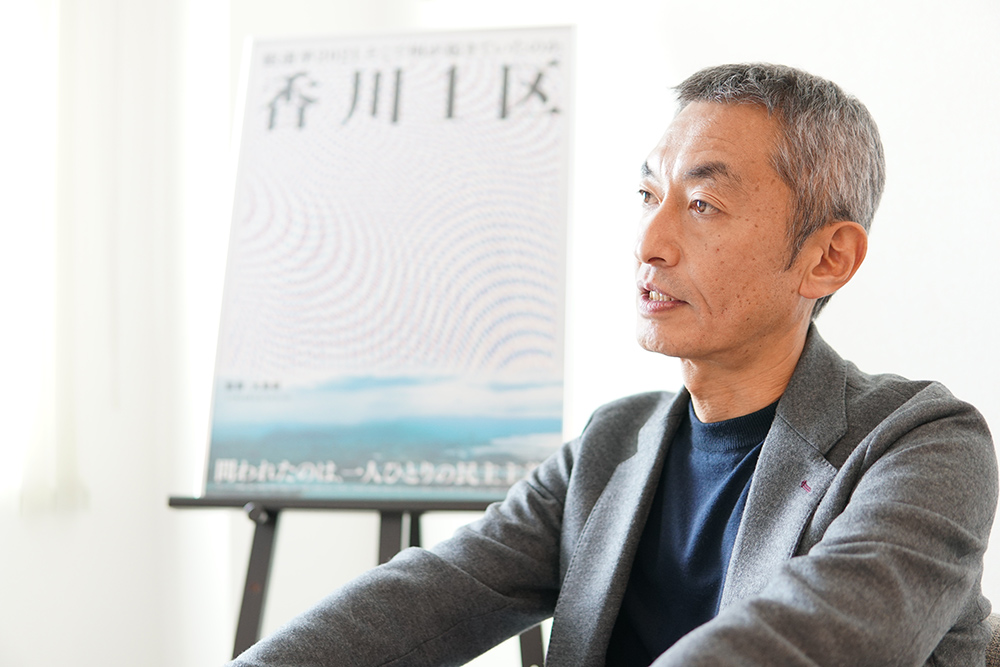!["Kagawa 1st Ward" Director Arata Oshima depicts the true picture of Japanese democracy in an entertaining masterpiece that surpasses his previous work [Director's Interview Vol.171]](https://cinemore.jp/images/a444c43ad1e289ac092f3cf2250fcd4549e5a9e8f7f3dcf0ab25db5ea6387ded.jpg)
"Kagawa 1st Ward" Director Arata Oshima depicts the true picture of Japanese democracy in an entertaining masterpiece that surpasses his previous work [Director's Interview Vol.171]
A series of events that make the movie interesting...
Q: So the title ``Kagawa 1 Ward'' was decided before filming?
Oshima: For me, the title tends to dictate the direction of the work. The title of the previous work was full of my thoughts and had a very strong meaning. On the contrary, this time I wanted it to be inorganic. That's why I started production with the neutral title ``Kagawa 1 Ward''.
Q: The phrase "I want to make it inorganic" makes a lot of sense to me. In the previous film, I had the impression that director Oshima was supporting the conflict of the character Junya Ogawa. In contrast, this film had a more rigid feel, but I guess that was the director's aim.
Oshima: Suddenly, scenes like news specials appear. Those factors may also have an influence. What surprised me, however, was that just as production was about to begin, Mr. Hirai made threatening remarks, which I thought would garner more and more attention. (*Author's note: Mr. Takuya Hirai instructed NEC, a contracting company, to ``threat'' NEC regarding the reduction of business costs for apps for the Tokyo Olympics and Paralympics.)

“Kagawa 1st Ward” Director Arata Oshima
Q: It was as if the god of documentary was telling us, ``We have no choice but to shoot now.''
Oshima: I had that feeling. I guess I have no choice but to take pictures. Even though no one asked for it, things happened one after another that made the movie more interesting, and I had to do my best to respond to them.
Q: Did you stay in Kagawa throughout the interview period?
Oshima: From June to August of this year, I only did interviews in Kagawa twice a month for 5 days and 4 nights. So at that time, I still had time to think about the structure and think about what kind of story it would be.
But as September entered, and then October, when the election campaign began, I was doing my best to deal with what was happening right in front of me, and I was in a state of rage, thinking, ``Can something like this happen every day?'' did.
Q: As a documentary filmmaker, it's a happy situation in a sense.
Oshima: Yes, I really think so.

